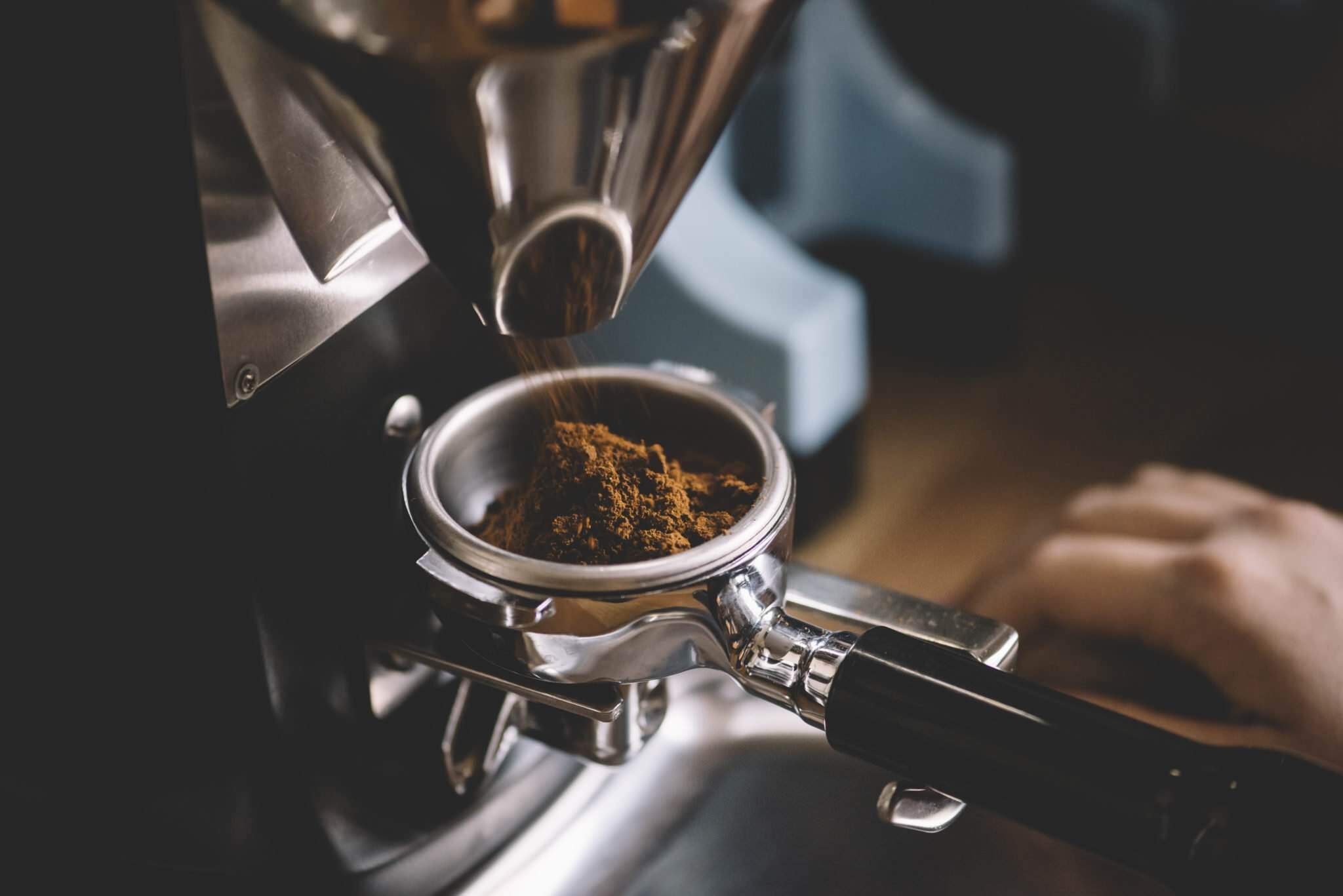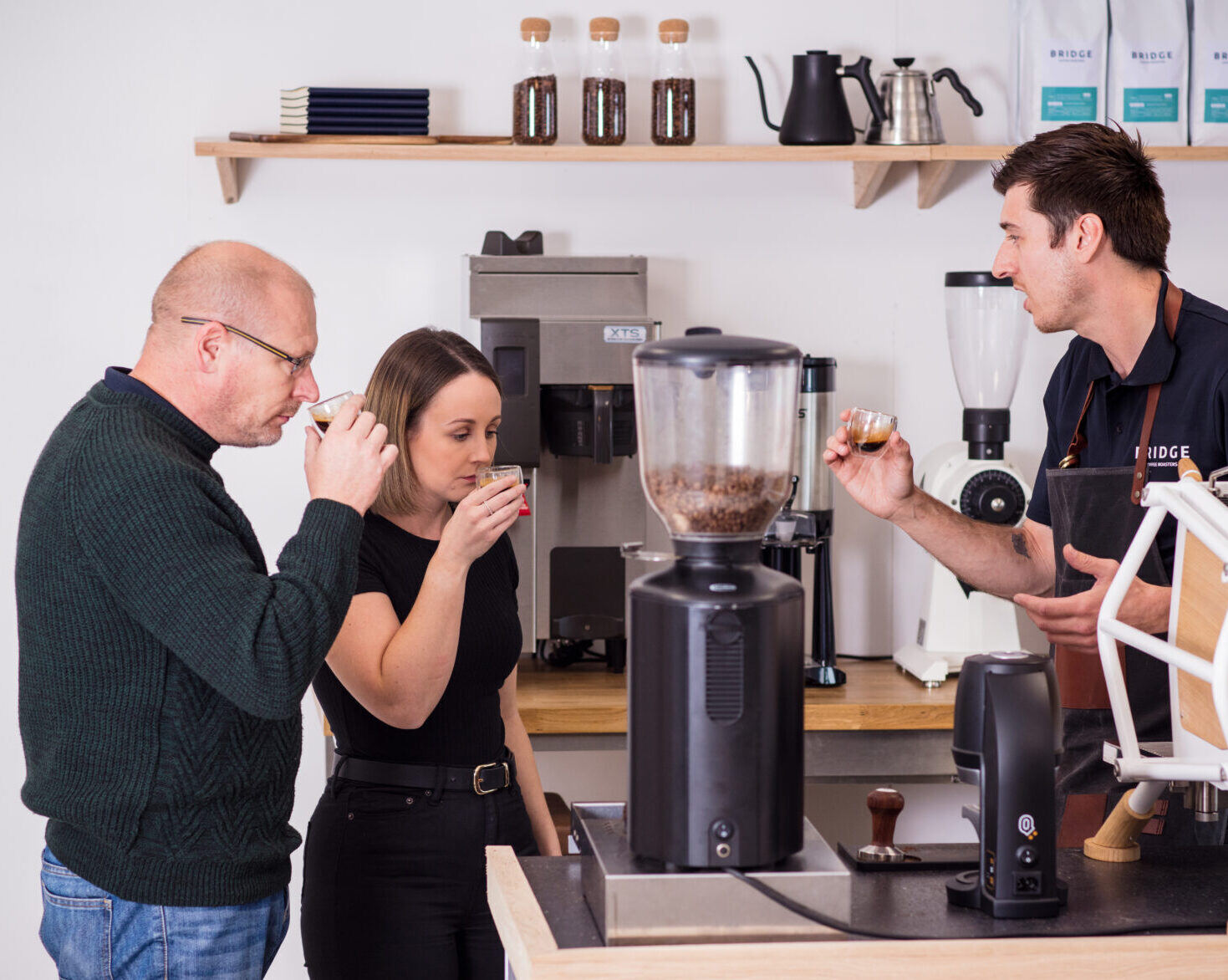16 May 2023
The 6 Pricing Factors of Wholesale Coffee: Beans, Machines and More
Jack Merriman
Digital Marketing Manager
The most common question we are asked when discussing our wholesale coffee services is: How much is this going to cost?
Makes total sense, right? Pricing is one of the first key pieces of information we all want to know before doing more research into a product or service. Frustratingly, this information can be difficult to find without first filling out a contact form and speaking to someone over the phone.
Although this is a rather complex question to answer, we will do our best here to give you a sense of what we charge our wholesale customers. We’ll also detail why there can be variances in the final price, and what kind of price range our customers can expect when it comes to their wholesale coffee, equipment, servicing and maintenance, and training.
Looking for actual prices? Click here to view our Pricing Page
What affects the Price of Wholesale Coffee Beans?
There are several things to consider when selecting the right coffee for you and your business, each with its own effect on the price. Some of these should be fairly obvious:
- Taste
- Origin
- Traceability
- Certifications
- Quality (SCA score)
- Order volume

As a broad range, wholesale coffee can range in price anywhere from £10 per kilo on the low end, to £30 per kilo and above for the highest quality, traceable specialty coffees. Here at Bridge Coffee Roasters, we offer different levels of wholesale coffee ranging in price from £10 to £25 depending on the specific coffee you go for and your order volumes. Learn more on our Pricing Page.
Our Amico range of commodity coffees are our most affordable, offering a dark-roasted flavour profile that mimics the ‘Italian coffee culture’ style of espresso. The final price depends on origin, traceability, SCA score and your total order volume, but a busy high street café can expect to pay £10-15 per kilo for this style of coffee.
The next step up in quality can be found in our Roots and Explorers’ ranges. These come with improvements in flavour, greater traceability, improved processing methods, speciality coffee standards (SCA 80+) and certifications such as Fairtrade or Organic. The blends here typically cost between £12-18 per kilo, whilst the single origins are usually £20-25 per kilo.
Our top end of coffees feature our highest SCA scores, greatest traceability, and highest quality growing and processing methods. These coffees are typically more interesting in flavour profile and best suited to filter coffees, espresso and small milk drinks. For this category you can expect to pay £30+ per kilo of roasted coffee.
How Much are Wholesale Coffee Machines, Grinders and Equipment?
Investing in a coffee machine is not a ‘one size fits all’ process. With an incredible number of options to choose from, potential upgrades and optional accessories, pricing can vary drastically for each customer.
You may feel the urge to focus solely on the price of your new coffee equipment, but this may lead you to sacrifice on other important aspects that could undermine the success of your business. As a company that relies on its wholesale customers being successful, we want you to choose the perfect machine the first time around. So, beyond price, other things to consider include:
- Bean to cup vs traditional espresso machine
- Built-in coffee vs external coffee grinder
- The number of group heads and boilers
- Manual vs automatic steaming
- Built-in scales
- Energy efficiency
- Design
- Brand name
- Reliability
- Ease of use

When it comes to coffee machines and additional equipment, our customers can choose either an upfront purchase or to enter into a leasing agreement with us, typically over a 3-5 year period. Click here to learn more about our coffee machine finance options. 
How Much do Traditional Espresso Machines and Grinders Cost?
The price we charge for traditional espresso machines varies substantially depending on the make and model. We currently wholesale a wide range of Sanremo espresso machines, from premium domestic appliances to the substantial commercial three group models.
Pricing for our traditional espresso machines varies drastically depending on the model, but typically ranges from £4.4k up to £23k list price. Final pricing can also be determined by any customisation in the design and materials, any additional ‘nice-to-have’ features and order volume. Many customers choose to lease their machines with us, ranging from a weekly listing cost of £35 to £115 based on a 5-year contract.

Traditional espresso machines also require external coffee grinders to operate at their full potential, allowing the user to brew with freshly ground coffee beans. Unsurprisingly, there are many options for coffee grinders with price points being determined by build quality, differences in the burr set, grind uniformity and workflow.
Our most affordable coffee grinder starts at £945, with the most premium costing £2.5k, with lease prices also available between £4.75 to £12.50 per week. We often recommend that our customers consider investing a meaningful portion of their budget on the grinder due to the significant impact it has on the quality of coffee you can produce.

How Much do Automatic Coffee Machines Cost?
Our ‘bean-to-cup’ style machines range significantly in price according to their capabilities, build quality, consistency, ease of use and the cup quality they can produce. At the more affordable end are the standard bean-to-cup machines, offering consistency and ease of use for a low price with reliability and cup-quality being the trade-off.
At the premium end of the category are the ‘super-traditional’ machines, mimicking the capabilities of a well-trained barista with a traditional espresso machine thanks to advances in measuring and brewing technologies.
Our more affordable range of automatic machines are manufactured by Schaerer with pricing typically starting at £4.5k up to £16.9k, whilst the premium ‘super-traditional’ machines by Eversys range from £18k up to £57k for the highest spec model. Lease prices for our automatic machines vary greatly from £28 to £285 weekly, based on a 5-year contract.

How Much Does it Cost to Fix Coffee Equipment?
Our wholesale customers typically invest in our ongoing service and maintenance cover for their coffee equipment, providing them with peace of mind and fast response time in case of an issue or fault with their gear. This, of course, adds an additional optional cost, but those that run into issues are typically thankful for their choice when service has halted due to a fault.
You can read more about our pricing in our article Coffee Machine Repairs, Pricing and Cost Factors, but as a quick overview: We offer three different price tiers with increasing levels of cover for our wholesale clients, with both retainer and ad-hoc options available.

- Silver – Pay as needed, £175 per callout including 30 min on-site labour, £15 per 15 mins thereafter.
- Gold – £1K-2K per annum.
- Platinum – Quoted on a site-by-site basis.
How Much Does Speciality Coffee Training Cost?
Many of our quality-focused customers, investing in capable espresso machines and our more premium coffees, typically look to get the most out of their setup through training their staff. This can be accomplished through enlisting their staff onto our SCA Barista Training courses.
Price varies here once again. We offer a range of courses to meet the needs and experience of our client, including the ‘Introduction to Coffee, ‘Barista’ and ‘Brewing’ courses. These can be conducted on-site, at our Cardiff roastery or at our London showroom.

Pricing for our 1-3 day SCA barista training courses can range from £165-£461 for an individual and from £489-£1,319 for company specific training courses of up to four people. An additional £55 certification fee is available for those looking to sit the examination and become SCA accredited at the end of the course.
Looking for an exact price?
We hope you now have a clearer sense of the prices to expect when working with us, and what goes into the final costs of our coffee, machines, servicing and training. If you’re looking for a specific price based on your needs, we just need a little more information from you.

